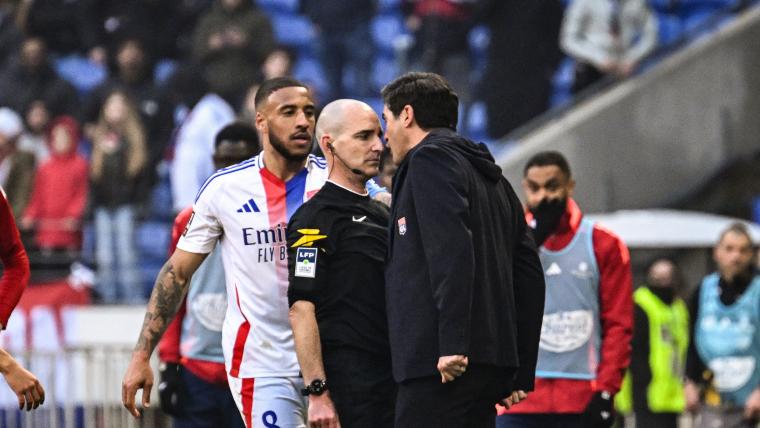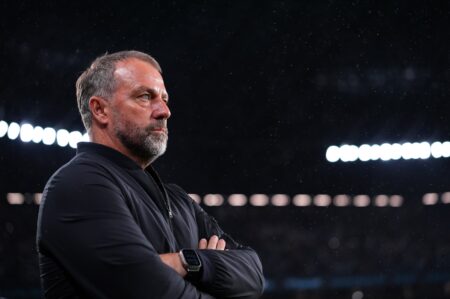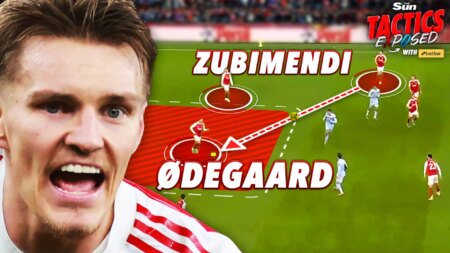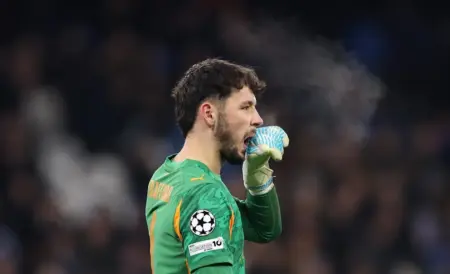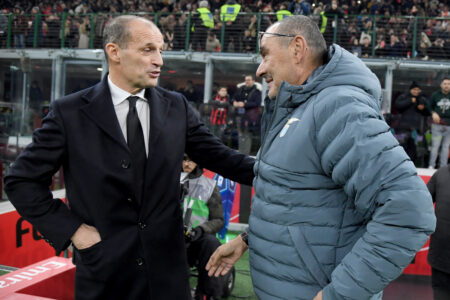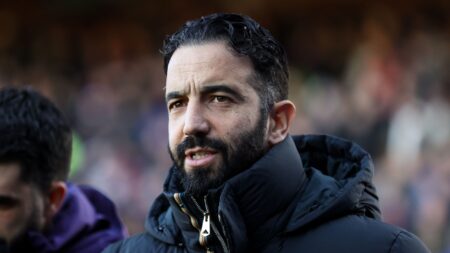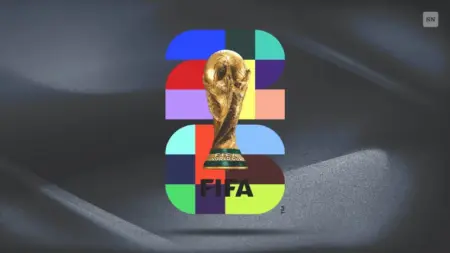Scrutiny on Officiating Reaches New Heights
In today’s football, the introduction of replay review and Video Assistant Referee (VAR) technology has brought an unprecedented level of precision and swiftness to the analysis of refereeing decisions. Given the enormous financial stakes involved in modern matches, the pressure on these decisions is immense. Every call, whether a penalty, a foul, or a card, can have significant implications for the outcome of a game and, by extension, the fate of the clubs involved. This heightened scrutiny can often lead to intense emotional reactions from players, coaches, and fans. Sometimes, these emotions spill over into actions that cross the line, as seen in a recent incident involving Lyon head coach Paulo Fonseca.
The Incident: Fonseca’s Confrontation with Referee Millot
Following a 2-1 win over Brest in Ligue 1, Paulo Fonseca found himself in the spotlight for all the wrong reasons. The match’s final moments were fraught with tension, culminating in a dramatic VAR review. Referee Benoit Millot initially awarded Brest a potential game-tying penalty for a handball in the fourth minute of added time. However, upon review, the penalty was rescinded as the defender’s hand was deemed to be in a natural position. Fonseca, visibly frustrated with the initial decision, approached Millot in a highly aggressive manner. He screamed in the referee’s face and made physical contact, pressing his forehead against Millot’s. According to Ligue 1, "The referee demonstrated remarkable composure and postural control in dealing with the violent behavior of the coach." Millot himself told L’Equipe that he initially believed Fonseca was going to headbutt him, but the altercation was thankfully prevented by Lyon captain Corentin Tolisso, who shielded the two and helped diffuse the situation.
The Consequences: A Nine-Month Suspension
The French Professional Football League (LFP) did not take Fonseca’s actions lightly. In a stern move, they suspended the coach for nine months, effective immediately. This means Fonseca will be barred from the touchline for all domestic matches until November 30, and he is also banned from the team’s dressing room, pitch, tunnel, and corridors until September 15. The suspension, however, does not extend to European competitions, allowing Fonseca to manage Lyon in the Europa League this season and any potential European matches in the 2025/26 campaign, should he still be in charge. This could change if UEFA decides to impose a similar ban in solidarity with the LFP’s decision, a scenario that has occurred in the past. The severity of the punishment underscores the zero-tolerance policy towards referee abuse and highlights the importance of maintaining respect and order in the game.
Lyon’s Reaction: Seeking Fairness in Punishment
Lyon acknowledged that Fonseca’s actions were wrong and required punishment but felt that the nine-month ban was disproportionately harsh. Owner John Textor voiced his support for the coach on Instagram, stating, "I stand with you today and always. You made a mistake, your apology was sincere… and your punishment is clearly too severe. You are the right man for OL and we shall persevere." Textor’s message reflects a desire to balance accountability with fairness. Fonseca himself offered a public apology to broadcaster DAZN, saying, "I just want to say that I apologize for this gesture. I shouldn’t have done it." Lyon’s general manager, Laurent Prud’homme, also addressed the incident, expressing the club’s stance: "Of course we’re not proud of what he showed yesterday. He said it and I’m proud of his immediate reaction. It was a fit of anger, not to be repeated, that’s obvious, but he came to apologize and from what he told me, he wrote to Mr. Delerue and Mr. Gauthier. We didn’t ask him for anything, he did it himself. Let’s also respect that a little bit."
The Broader Impact: A New Spotlight on Referee Abuse
Fonseca’s suspension has reignited discussions about the treatment of referees in football. Referees have always been under intense scrutiny, but the ability to review and challenge their decisions in real-time has amplified the pressure. The incident serves as a stark reminder of the fine line between emotional outbursts and unacceptable behavior. While many in the football community agree that Fonseca’s actions were inappropriate and warranted punishment, there is a growing debate about the proportionality of the nine-month ban. The severity of the suspension could set a precedent for future incidents, potentially leading to more stringent measures against coach misconduct. This could have far-reaching implications for the way the game is officiated and the behavior expected from those on the sidelines.
Moving Forward: Balancing Accountability and Support
As Lyon and Fonseca navigate this challenging period, the focus will be on finding a balance between holding the coach accountable and providing support. Fonseca’s immediate apology and his efforts to make amends with the officials and the opposing team indicate a willingness to accept responsibility and learn from his mistake. Lyon’s management has shown solidarity with their coach, emphasizing the sincerity of his regret and the steps he has taken to rectify the situation. The club will likely explore an appeal to see if the punishment can be reduced, given the unprecedented nature of the ban. Moving forward, it is crucial for football authorities to ensure that such incidents are handled with a fair and consistent approach, one that deters future misconduct while also recognizing and encouraging genuine remorse and efforts towards improvement.

